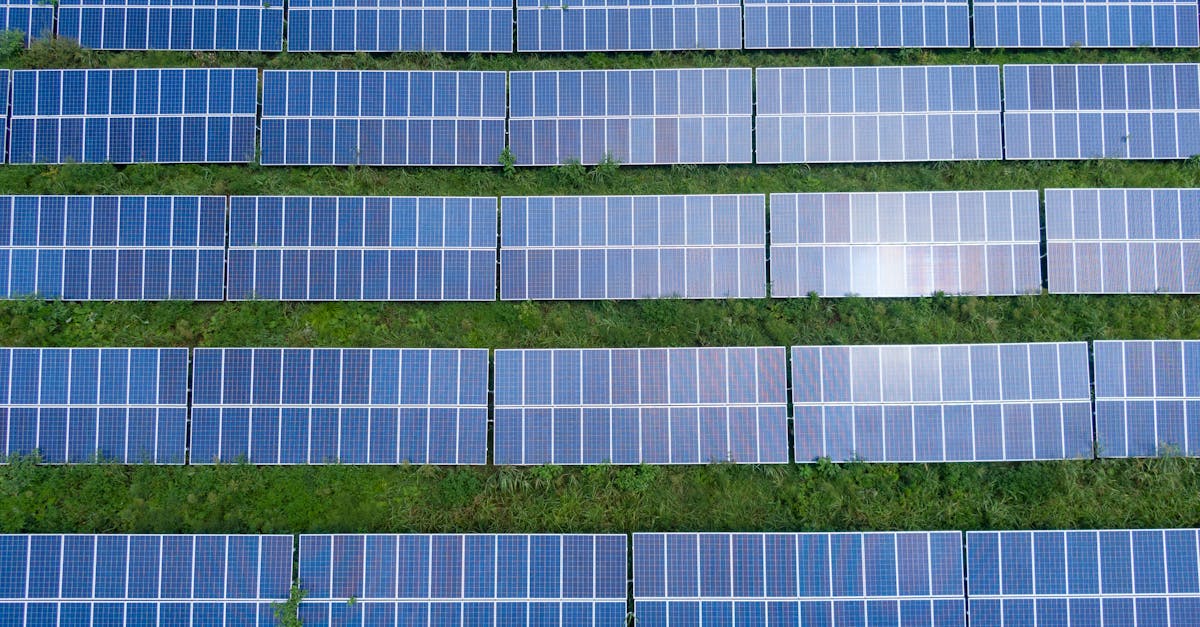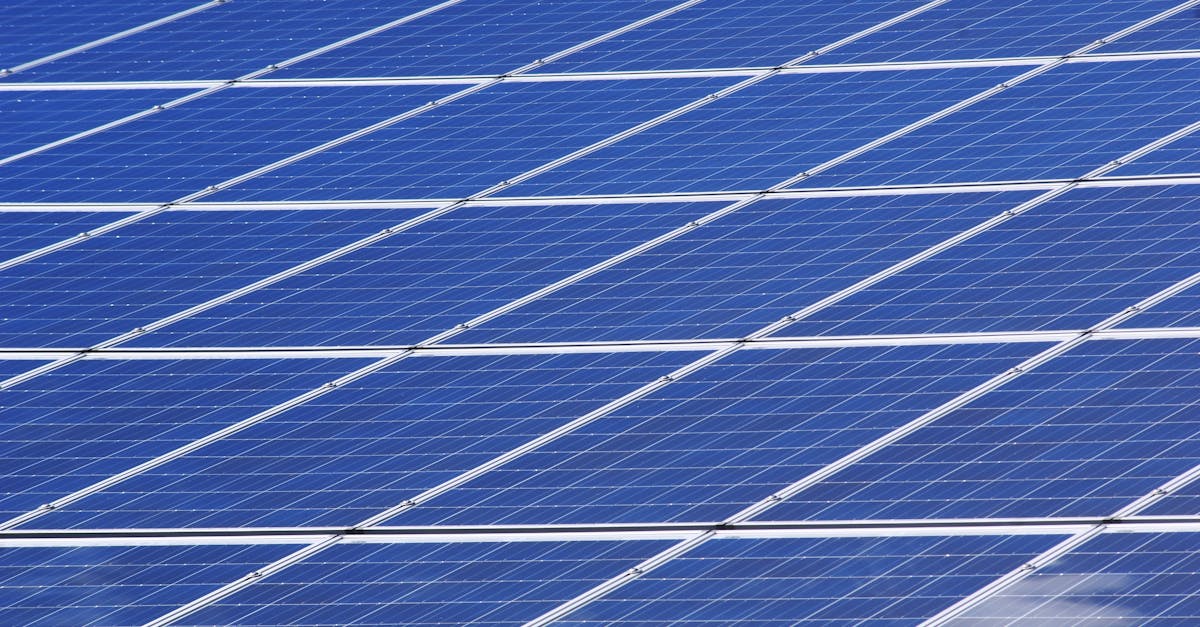The Ultimate Path to Energy Freedom: Solar System Packages for Sustainable Homes

Living Off the Grid: How Solar System Packages Power Sustainable Homes
Embracing Energy Independence for a Sustainable Future
Thank you for reading this post, don't forget to subscribe!
In an era marked by environmental concerns and rising energy costs, embracing sustainable living has become imperative. Off-grid solar systems offer a remarkable solution, empowering homeowners and businesses alike to generate their own electricity, achieve energy independence, and contribute to a greener future. With advancements in solar technology and accessible financing options, transitioning to off-grid living has never been more feasible. This comprehensive guide will delve into the benefits, types, components, and financing of solar system packages, providing all the essential information you need to embark on your journey towards sustainable living.
Subtitle: Unlocking Solar Energy: The Key to Sustainable, Off-Grid Living
Image Keywords: Solar panels, off-grid living, sustainable home, renewable energy, energy independence, solar system package
1. Embracing Energy Independence: The Benefits of Off-Grid Living
Embracing Energy Independence: The Benefits of Off-Grid Living
Discover the advantages of generating your own electricity, reducing environmental impact and reliance on utilities.
Energy Self-Sufficiency and Control:
Take charge of your energy needs and say goodbye to power outages. Off-grid solar systems provide complete autonomy, ensuring a reliable and uninterrupted power supply for your home. No more worries about fluctuating utility bills or dependence on external energy sources.
Environmental Stewardship and Reduced Carbon Footprint:
Harnessing the sun’s boundless energy, solar systems significantly reduce your environmental impact. By generating clean, renewable electricity, you contribute to a greener future and minimize your carbon footprint. Embrace sustainable living and make a positive impact on the planet.
Financial Savings and Investment:
Investing in an off-grid solar system offers long-term financial benefits. While the initial installation may require an upfront cost, you’ll experience substantial savings on your energy bills over time. In many cases, these savings can offset the installation costs, providing a smart investment with a high return.
Energy Self-Sufficiency and Control
Energy Self-Sufficiency and Control:
Gain complete autonomy over your energy supply and avoid power outages.
Imagine having complete control over your home’s energy, free from the constraints and uncertainties of the grid. Off-grid solar systems empower you with energy independence, ensuring an uninterrupted power supply for your daily needs and peace of mind.
With an off-grid system, you can bid farewell to power outages that disrupt your routine and compromise your comfort. Natural disasters or unexpected events will no longer pose a threat to your electricity supply. Embrace the serenity of knowing that your home remains powered, regardless of external circumstances.
Moreover, off-grid living fosters a sense of self-reliance and resilience. By generating your own electricity, you become less dependent on external factors and take an active role in securing your energy future. Experience the satisfaction of producing and consuming your own sustainable energy, while contributing to a cleaner and more resilient community.
Environmental Stewardship and Reduced Carbon Footprint
Environmental Stewardship and Reduced Carbon Footprint:
Harness renewable energy to minimize your environmental impact and contribute to a greener future.
Embrace the role of an environmental steward by harnessing the sun’s limitless energy with off-grid solar systems. By generating your own clean electricity, you actively reduce your reliance on fossil fuels and contribute to a greener future for generations to come.
Off-grid solar systems significantly minimize your carbon footprint, reducing greenhouse gas emissions that contribute to climate change. As a responsible homeowner, you can make a tangible difference in protecting the environment and preserving the planet’s natural beauty for years to come.
Join the growing movement of eco-conscious individuals who are committed to sustainable living. Invest in an off-grid solar system today and become an active participant in shaping a cleaner, more sustainable future for your family and community.
Financial Savings and Investment
Financial Savings and Investment:
Reduce your energy bills, potentially eliminate them over time, and enjoy long-term savings.
Off-grid solar systems offer significant financial benefits that can accumulate over time, making them a smart investment for your home. By generating your own electricity, you gain control over your energy expenses and reduce your reliance on costly utility bills.
In many cases, the savings from reduced energy bills can offset the initial investment in your solar system. As energy costs continue to rise, your off-grid system will continue to provide cost-effective, clean energy, potentially eliminating your energy bills altogether.
Moreover, off-grid solar systems increase the value of your property. Homes with renewable energy features are highly sought after in today’s market, and can command a higher resale value. Embrace the financial benefits of off-grid living and secure a brighter financial future for yourself and your family.
2. Types of Solar System Packages: Tailoring to Your Needs

Types of Solar System Packages: Tailoring to Your Needs
Explore various types of solar system packages, including grid-tied, hybrid, and off-grid systems.
When choosing a solar system package, it’s essential to understand the different types available to determine the best fit for your specific needs and lifestyle. Each type offers unique advantages and considerations:
- Grid-Tied Systems: These systems connect your solar panels to the utility grid, allowing you to sell excess energy back to the grid for a credit on your utility bill. This option is suitable if you have a reliable grid connection and want to minimize your energy costs.
- Hybrid Systems: Hybrid systems combine solar panels with a battery backup, providing both grid-tied and off-grid capabilities. This option offers increased resilience as you can still generate and store solar energy during grid outages.
- Off-Grid Systems: Off-grid systems are completely independent of the utility grid, relying solely on solar panels and batteries for power. This option is ideal for remote locations or those seeking complete energy independence.
Grid-Tied Systems: Net Metering and Surplus Energy
Grid-Tied Systems: Net Metering and Surplus Energy
Connect to the grid to sell excess energy and offset your utility bills.
Grid-tied solar systems offer a unique opportunity to connect your solar panels to the utility grid. This connection allows you to sell excess solar energy back to the grid, earning credits that can offset your utility bills.
Net Metering: Net metering is a billing mechanism that allows you to sell excess solar energy to the grid at a retail rate, reducing your electricity costs. The utility company tracks the net difference between the energy you generate and consume, and you are only charged for the net energy you use.
Grid-tied systems are ideal for homeowners who want to reduce their energy bills while still maintaining a connection to the grid. They offer the benefits of solar energy without the need for battery storage, making them a cost-effective and convenient option for many households.
Hybrid Systems: Flexibility and Backup Power
Hybrid Systems: Flexibility and Backup Power
Combine solar energy with grid power or a generator for added reliability.
Hybrid solar systems combine the best of both worlds, offering the flexibility of grid-tied systems with the added reliability of battery backup. These systems allow you to generate solar energy, store excess energy in batteries, and seamlessly switch to grid power or a generator during periods of low solar production or high energy demand.
Battery Backup: Hybrid systems with battery backup provide peace of mind during grid outages, ensuring you have a reliable source of power for essential appliances and devices. The stored solar energy in the batteries can power your home for several hours or even days, depending on your energy needs and battery capacity.
Hybrid systems are ideal for homeowners who want the benefits of solar energy with the added security of backup power. They offer increased resilience and energy independence, making them a popular choice for areas with unreliable grid connections or frequent power outages.
Off-Grid Systems: Complete Energy Independence
Off-Grid Systems: Complete Energy Independence
Generate all your electricity from solar panels and store it in batteries for self-sufficiency.
Off-grid solar systems offer the ultimate in energy independence, allowing you to generate and store all your electricity from solar panels and batteries. These systems are ideal for remote locations or those seeking complete freedom from the utility grid.
Battery Storage: Off-grid systems rely on batteries to store excess solar energy for use during periods of low solar production or high energy demand. Battery technology has advanced significantly in recent years, providing efficient and cost-effective storage solutions.
Off-grid systems offer a sense of self-reliance and resilience, empowering you to generate your own clean energy and live sustainably. They are a popular choice for eco-conscious individuals and those seeking energy security in remote or off-grid areas.
3. Components of a Solar System: Understanding the Essentials
Components of a Solar System: Understanding the Essentials
Learn about the key components of a solar system, their functions, and how they work together.
Understanding the components of a solar system is crucial for maximizing its efficiency and performance. Here’s a breakdown of the essential elements and their roles:
- Solar Panels: Solar panels are the heart of a solar system, converting sunlight into electricity. They are made up of photovoltaic cells that absorb sunlight and generate direct current (DC) electricity.
- Charge Controller: The charge controller plays a vital role in regulating the flow of electricity from the solar panels to the batteries. It prevents overcharging and ensures optimal battery performance.
- Inverter: The inverter converts the DC electricity generated by the solar panels into alternating current (AC) electricity. AC electricity is compatible with most household appliances and devices.
- Batteries (for Off-Grid Systems): Batteries are essential for off-grid solar systems, storing excess solar energy for use when the panels are not generating electricity, such as at night or during cloudy weather.
Solar Panels: Converting Sunlight into Electricity
Solar Panels: Converting Sunlight into Electricity
Explore the technology behind solar panels and their efficiency ratings.
Solar panels are the foundation of any solar energy system, responsible for capturing sunlight and converting it into electricity. Here’s a closer look at how they work and the factors that affect their efficiency:
Photovoltaic Effect: Solar panels are made up of photovoltaic cells, which utilize the photovoltaic effect to generate electricity. When sunlight strikes these cells, it knocks electrons loose, creating an electrical current.
Efficiency Ratings: The efficiency of a solar panel measures its ability to convert sunlight into electricity. Efficiency is expressed as a percentage, with higher percentages indicating greater efficiency. Factors like cell technology, panel design, and manufacturing processes influence a panel’s efficiency.
Charge Controller: Regulating Power Flow
Charge Controller: Regulating Power Flow
Understand the role of the charge controller in protecting batteries from overcharging.
A charge controller is a crucial component in any solar system, particularly for off-grid systems with battery storage. Its primary function is to regulate the flow of electricity from the solar panels to the batteries, ensuring optimal battery performance and longevity.
Overcharging Prevention: Overcharging can damage batteries, reducing their capacity and lifespan. The charge controller monitors the battery voltage and automatically adjusts the charging current to prevent overcharging. This ensures that the batteries are charged efficiently without being overfilled.
Battery Protection: In addition to preventing overcharging, charge controllers also protect batteries from other harmful conditions. They can prevent reverse current flow from the batteries to the solar panels at night, and they can disconnect the batteries from the solar panels in case of overvoltage or under-voltage conditions.
Inverter: Converting DC Power to AC Power
Inverter: Converting DC Power to AC Power
Learn about the function of the inverter and its importance for powering appliances.
An inverter is a critical component in solar systems, responsible for converting the direct current (DC) electricity generated by the solar panels into alternating current (AC) electricity. AC electricity is compatible with most household appliances and devices, making the inverter essential for utilizing solar energy to power your home.
DC to AC Conversion: The inverter’s primary function is to convert the DC electricity produced by the solar panels into AC electricity. This conversion is necessary because most appliances and devices in our homes operate on AC electricity.
Powering Appliances: Once the DC electricity is converted to AC electricity, it can be used to power various appliances and devices in your home. This includes essential appliances like refrigerators, lights, and computers, as well as other devices like TVs, power tools, and charging stations.
Batteries: Storing Energy for Off-Grid Systems
Batteries: Storing Energy for Off-Grid Systems
Discover different battery technologies and their suitability for off-grid storage.
In off-grid solar systems, batteries play a crucial role in storing excess solar energy for use when the panels are not generating electricity, such as at night or during cloudy weather. Choosing the right battery technology is essential for maximizing the efficiency and reliability of your off-grid system.
Lead-Acid Batteries: Lead-acid batteries are a traditional and cost-effective option for off-grid energy storage. They are relatively inexpensive and have a long history of use in various applications. However, lead-acid batteries have a shorter lifespan and lower energy density compared to other battery technologies.
Lithium-Ion Batteries: Lithium-ion batteries are becoming increasingly popular for off-grid solar systems due to their high energy density, long lifespan, and low maintenance requirements. They are lightweight and compact, making them suitable for space-constrained installations.
4. Professional Installation: Ensuring Safety and Performance

Professional Installation: Ensuring Safety and Performance
Emphasize the importance of hiring qualified professionals for solar system installation.
Installing a solar system requires specialized knowledge, skills, and safety considerations. Hiring qualified professionals for the job is crucial to ensure the safety and optimal performance of your system.
Electrical Expertise: Solar system installation involves working with high-voltage electricity, which can be dangerous if not handled properly. Qualified electricians have the training and experience to safely install and wire your system, minimizing the risk of electrical hazards.
System Design and Optimization: Professional installers can design a customized solar system that meets your specific energy needs and maximizes efficiency. They consider factors such as roof orientation, shading, and local regulations to ensure optimal energy production.
Electrical Wiring and Safety Standards
Electrical Wiring and Safety Standards
Stress the need for proper electrical wiring and adherence to safety regulations.
Proper electrical wiring is fundamental to the safety and longevity of your solar system. Qualified electricians follow strict electrical codes and standards to ensure the system is installed correctly and operates safely.
Electrical Code Compliance: Adhering to electrical codes is essential for minimizing the risk of electrical fires and other hazards. Qualified electricians are familiar with the latest electrical codes and ensure that the solar system is installed in accordance with these regulations.
Safe Wiring Practices: Proper wiring techniques, such as using the correct wire gauge and ensuring secure connections, are crucial for preventing electrical problems. Qualified electricians follow industry best practices to ensure the wiring is safe and reliable.
Optimal System Design and Component Selection
Optimal System Design and Component Selection
Explain the significance of designing a system that meets your specific energy needs and using high-quality components.
A well-designed solar system, tailored to your specific energy consumption and local conditions, is crucial for maximizing its efficiency and cost-effectiveness. High-quality components ensure the system’s durability, reliability, and long-term performance.
Customized System Design: A professional installer will assess your energy needs, roof orientation, shading, and other factors to design a system that meets your unique requirements. This ensures optimal energy production and minimizes energy waste.
High-Quality Components: Using high-quality solar panels, inverters, and other components is essential for long-term reliability and efficiency. Look for components that are manufactured by reputable brands and meet industry standards for quality and durability.
Roofing Considerations and Aesthetics
Roofing Considerations and Aesthetics
Discuss the impact of solar panels on roofing and aesthetic factors to consider.
Solar panels require proper installation on your roof, which may involve drilling holes and making modifications. It’s important to consider the impact on your roof’s structure and appearance.
Roofing Integrity: Qualified installers take precautions to minimize any impact on your roof’s integrity. They use appropriate mounting systems and techniques to ensure the panels are securely attached without compromising the roof’s waterproofing.
Aesthetic Considerations: Solar panels can alter the appearance of your roof. Some homeowners prefer a uniform, sleek look, while others embrace the visible panels as a statement of sustainability. Consider the visual impact and choose a panel layout that complements your home’s aesthetics.
5. Maintenance and Monitoring: Ensuring Optimal Performance
Maintenance and Monitoring: Ensuring Optimal Performance
Provide guidelines for solar system maintenance and monitoring to ensure longevity and efficiency.
Regular maintenance and monitoring are essential to keep your solar system operating at its best and maximize its lifespan. Here are some key guidelines:
Regular Cleaning: Solar panels should be cleaned periodically to remove dirt, dust, and debris that can accumulate over time. This ensures optimal sunlight absorption and energy production.
Panel Inspection: Inspect your solar panels regularly for any signs of damage, such as cracks, broken cells, or discoloration. Promptly address any issues to prevent further deterioration.
Monitoring System Performance: Monitor your system’s performance using a monitoring system or app. This will allow you to track energy production, identify any underperforming panels, and troubleshoot issues quickly.
Regular Panel Cleaning: Maximizing Sun Exposure
Regular Panel Cleaning: Maximizing Sun Exposure
Highlight the importance of keeping solar panels clean to optimize energy absorption.
Solar panels rely on sunlight to generate electricity, so keeping them clean is crucial for maximizing energy production. Dirt, dust, bird droppings, and other debris can accumulate on the panels over time, blocking sunlight and reducing efficiency.
Regular Cleaning Schedule: Establish a regular cleaning schedule, especially during seasons when debris accumulation is more common. Use a soft brush or cloth with water to gently remove dirt and debris without scratching the panels.
Improved Energy Absorption: Clean solar panels allow more sunlight to reach the photovoltaic cells, increasing energy absorption and electricity generation. Regular cleaning can significantly improve the overall performance of your solar system.
Battery Maintenance: Extending Lifespan and Capacity
Battery Maintenance: Extending Lifespan and Capacity
Explain proper battery maintenance techniques to prolong their lifespan and maintain storage capacity.
Batteries are a crucial component of off-grid solar systems, and proper maintenance is essential to ensure their longevity and reliability. Here are some key battery maintenance tips:
Regular Monitoring: Regularly check your batteries’ voltage, electrolyte levels, and temperature. Monitoring allows you to detect any potential issues early on and take corrective action.
Proper Charging: Follow the manufacturer’s guidelines for charging your batteries. Avoid overcharging or under-charging, as both can shorten the battery’s lifespan.
Temperature Control: Batteries are sensitive to extreme temperatures. Protect them from excessive heat or cold by storing them in a controlled environment.
Performance Monitoring and Troubleshooting
Performance Monitoring and Troubleshooting
Discuss monitoring systems and troubleshooting tips to identify and resolve potential issues.
Monitoring your solar system’s performance is crucial for ensuring optimal energy production and identifying any potential issues. Here are some tips for effective monitoring and troubleshooting:
Monitoring Systems: Install a monitoring system that allows you to track your system’s performance remotely. This will provide you with real-time data on energy production, battery status, and other key metrics.
Regular Inspections: Conduct regular visual inspections of your solar panels, wiring, and other components. Look for any signs of damage, loose connections, or other abnormalities.
Troubleshooting Common Issues: Familiarize yourself with common solar system issues and their troubleshooting steps. This includes addressing problems like reduced energy production, battery charging issues, and inverter faults.
6. Financing Options: Making Solar Energy Accessible

Financing Options: Making Solar Energy Accessible
Explore various financing options available for homeowners and businesses considering solar system installation.
The upfront cost of installing a solar system can be a barrier for some. Fortunately, various financing options are available to make solar energy more accessible:
Explain loan and lease options specifically designed for solar system financing.
Solar Loans:
- Specifically designed for financing solar system installations.
- Typically offer low interest rates and long repayment terms (10-25 years).
- Allow for full ownership of the system once the loan is paid off.
Solar Leases:
- Provide an alternative to purchasing a solar system outright.
- Allow you to lease the system from a solar provider and pay a monthly lease payment.
- Offer lower upfront costs but do not result in ownership of the system.
Government Incentives and Tax Credits
Government Incentives and Tax Credits:
Provide information on available government incentives and tax credits that can reduce installation costs.
Federal Tax Credits:
- The federal government offers a 30% tax credit on the cost of installing a solar system.
- This tax credit is available to both residential and commercial property owners.
- The credit can be claimed on your federal income tax return.
State and Local Incentives:
- Many states and local governments offer their own solar incentives, such as rebates, tax exemptions, and net metering programs.
- These incentives vary by location, so it’s important to research what’s available in your area.
- Database of State Incentives for Renewables & Efficiency (DSIRE): https://www.dsireusa.org/
Energy Performance Contracting
Energy Performance Contracting:
Describe energy performance contracting as an alternative financing model where contractors guarantee energy savings.
Energy Performance Contracting (EPC):
- An alternative financing option for solar system installations.
- Contractors design, install, and maintain the system and guarantee specific energy savings.
- Property owners pay for the system based on the actual energy savings achieved.
- EPCs can reduce the upfront costs of solar installations and provide peace of mind with guaranteed savings
Adopting Solar Energy: A Sustainable Future
Conclude the article by reiterating the benefits of living off the grid and encouraging readers to embrace solar energy.
Embracing solar energy offers a path towards a more sustainable and independent future. By harnessing the sun’s abundant energy, we can reduce our reliance on fossil fuels, minimize our environmental impact, and enjoy the benefits of off-grid living.
From increased energy independence and financial savings to environmental stewardship and resilience, the advantages of solar energy are undeniable. As technology continues to advance and financing options become more accessible, adopting solar energy becomes a wise choice for homeowners and businesses alike.
Let’s collectively embrace the power of solar energy and create a brighter, more sustainable future for generations to come.
Environmental Stewardship and Sustainability
Environmental Stewardship and Sustainability:
Reemphasize the environmental benefits and sustainability of solar energy.
Solar energy is inherently sustainable, as it harnesses the sun’s limitless energy without depleting natural resources. By embracing solar energy, we actively contribute to a cleaner and healthier environment:
- Reduced Carbon Footprint: Solar panels generate electricity without producing greenhouse gases, significantly reducing our carbon footprint and mitigating climate change.
- Conservation of Natural Resources: Unlike fossil fuels, solar energy is renewable and abundant. It does not deplete our finite natural resources and preserves them for future generations.
- Protection of Ecosystems: Solar energy installations often replace fossil fuel-burning power plants, reducing air and water pollution. This helps protect ecosystems, wildlife, and human health.
Long-Term Savings and Return on Investment
Long-Term Savings and Return on Investment:
Highlight the long-term savings and potential return on investment associated with solar energy.
Investing in solar energy offers significant long-term financial benefits:
- Reduced Energy Bills: Solar panels generate free electricity, drastically reducing your reliance on the grid and lowering your monthly energy bills.
- Increased Property Value: Homes with solar panels are often more valuable and desirable, increasing your property’s resale value.
- Potential Return on Investment: The cost of solar panels has decreased significantly over the years, making them a worthwhile investment with a potential return on investment through energy savings and increased property value.
Empowering Individuals and Communities
Empowering Individuals and Communities:
Discuss the empowerment and resilience that comes with energy independence.
Embracing solar energy empowers individuals and communities in several ways:
- Increased Energy Independence: Solar energy allows you to generate your own electricity, reducing reliance on external energy sources and increasing self-sufficiency.
- Resilience in Power Outages: With battery backup systems, solar panels can provide electricity during power outages, ensuring essential services and comfort.
- Community Involvement: Solar cooperatives and community solar projects foster a sense of ownership and collaboration, strengthening community bonds.
Is solar energy only suitable for remote locations or off-grid living?
No, solar energy is also a viable option for homes and businesses connected to the grid. In fact, many people choose to install solar panels to reduce their reliance on the grid and take advantage of potential financial incentives.
Is it difficult and expensive to maintain a solar energy system?
Maintaining a solar energy system is relatively easy and affordable. Regular cleaning of the solar panels and periodic inspections are typically the only maintenance tasks required.
Does solar energy work on cloudy days or at night?
Solar panels can still generate electricity on cloudy days, although the amount of electricity produced will be reduced. They do not generate electricity at night, so battery storage or a backup generator is necessary for continuous power supply.
How long do solar panels typically last?
Solar panels have a long lifespan, typically lasting 25 years or more. This makes them a durable and worthwhile investment with a high return on investment.
Is solar energy a good investment?
Yes, solar energy is generally considered a good investment due to its long-term savings on energy bills, potential increase in property value, and positive environmental impact.
Quiz: Test Your Solar Energy Knowledge
- Which of the following is NOT a benefit of solar energy?
(a) Reduced energy bills (b) Increased reliance on fossil fuels (c) Environmental sustainability (d) Long-term savings
- True or False: Solar panels can only generate electricity in direct sunlight.
(a) True (b) False
- Which type of solar system is suitable for remote locations or those seeking complete energy independence?
(a) Grid-tied system (b) Hybrid system (c) Off-grid system (d) None of the above
- What is the primary function of a charge controller in a solar system?
(a) To convert AC electricity to DC electricity (b) To regulate the flow of electricity from solar panels to batteries (c) To store excess solar energy (d) To invert DC electricity to AC electricity
- Which of the following is a key consideration when choosing a solar battery technology?
(a) Energy density (b) Lifespan (c) Maintenance requirements (d) All of the above
- (b)
- (b)
- (c)
- (b)
- (d)




